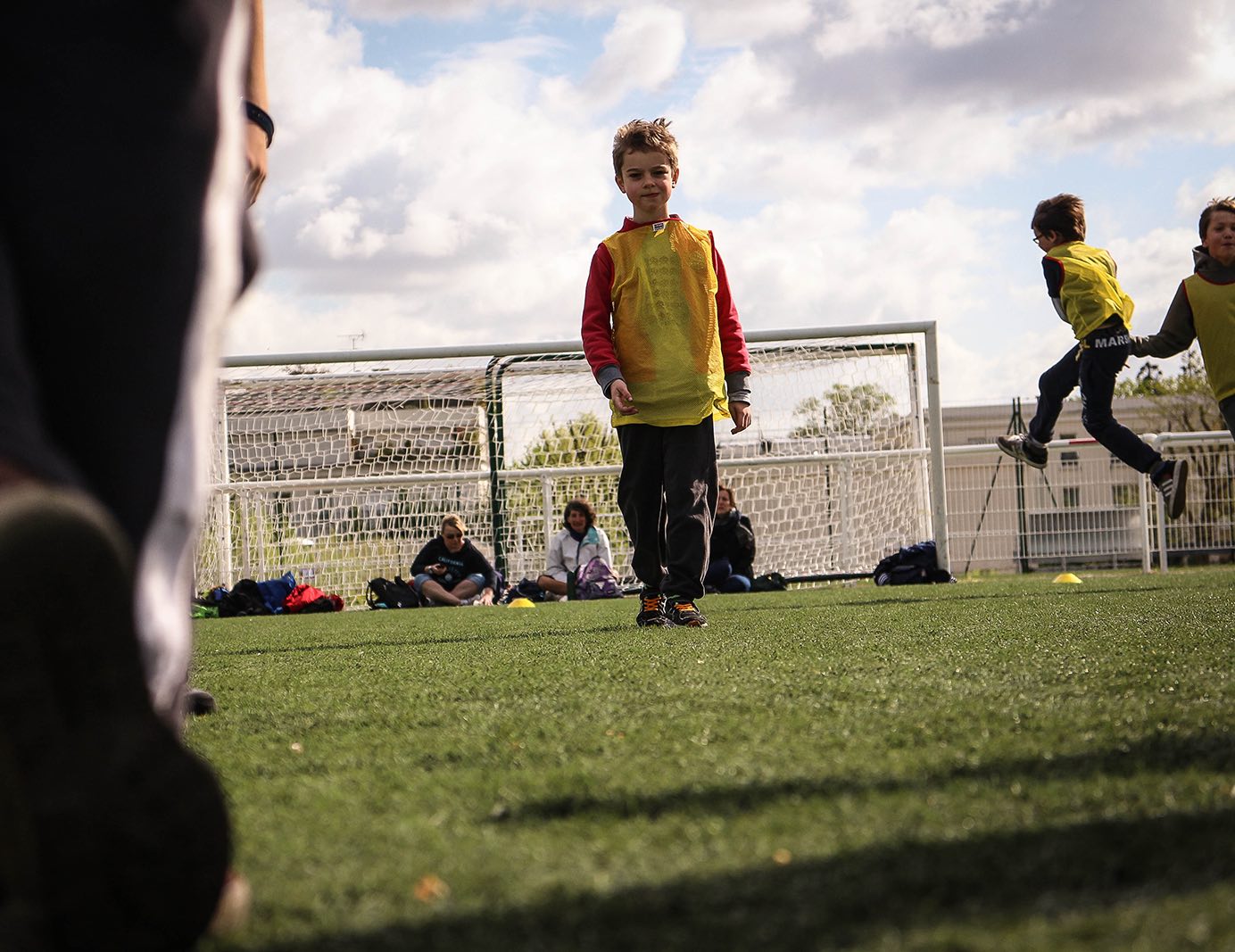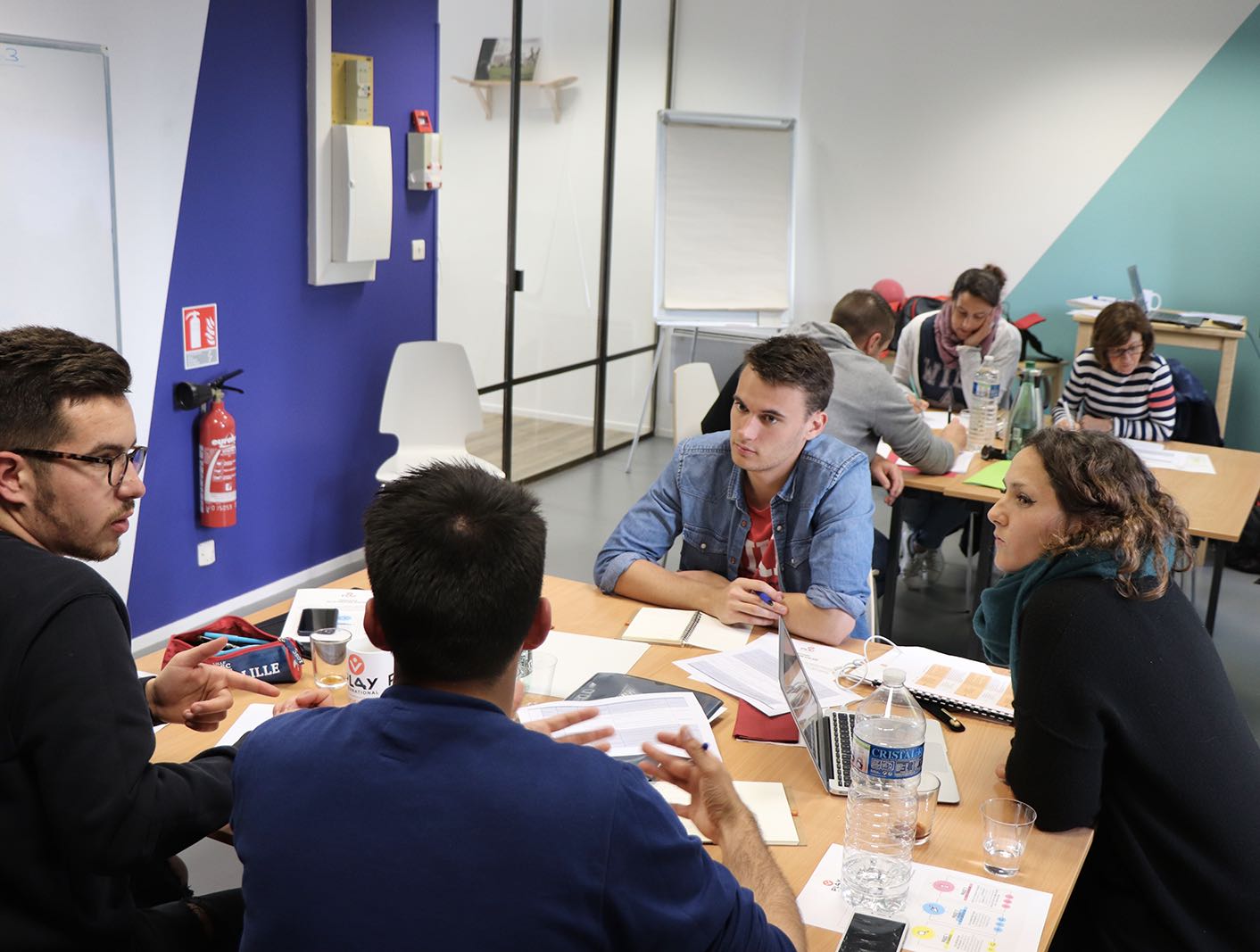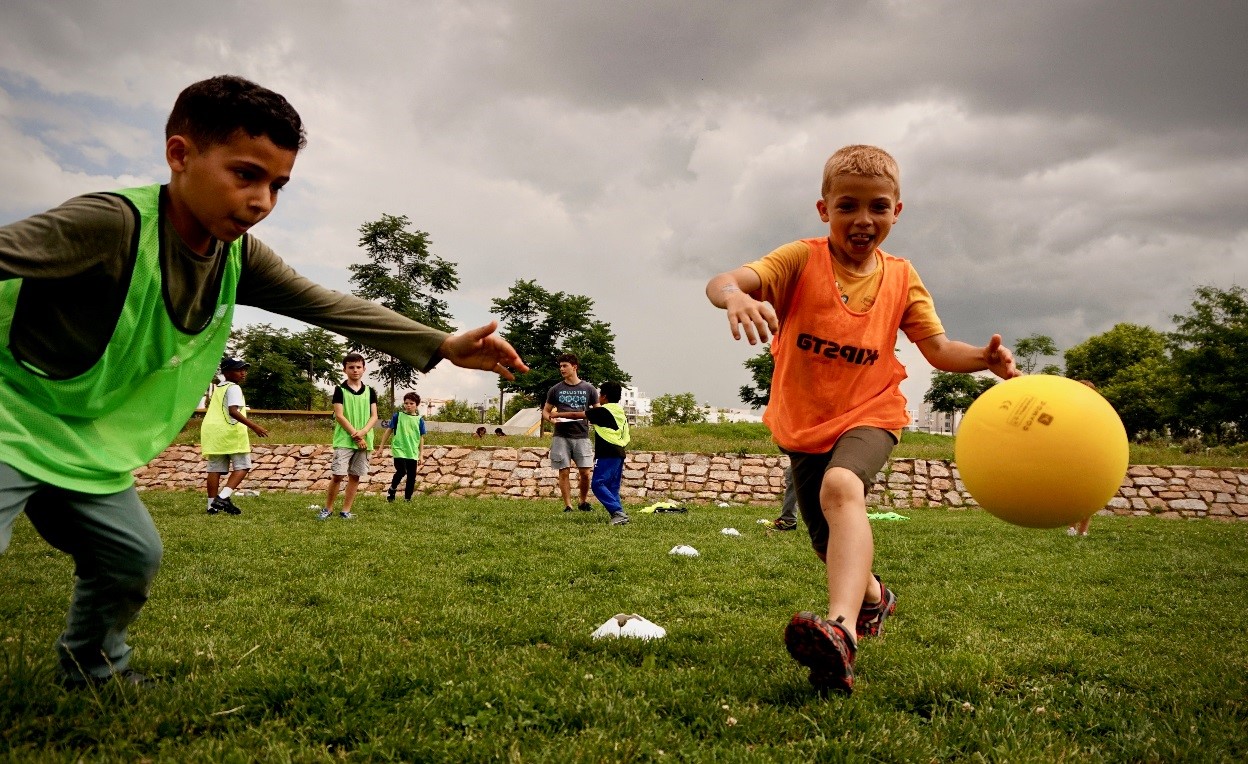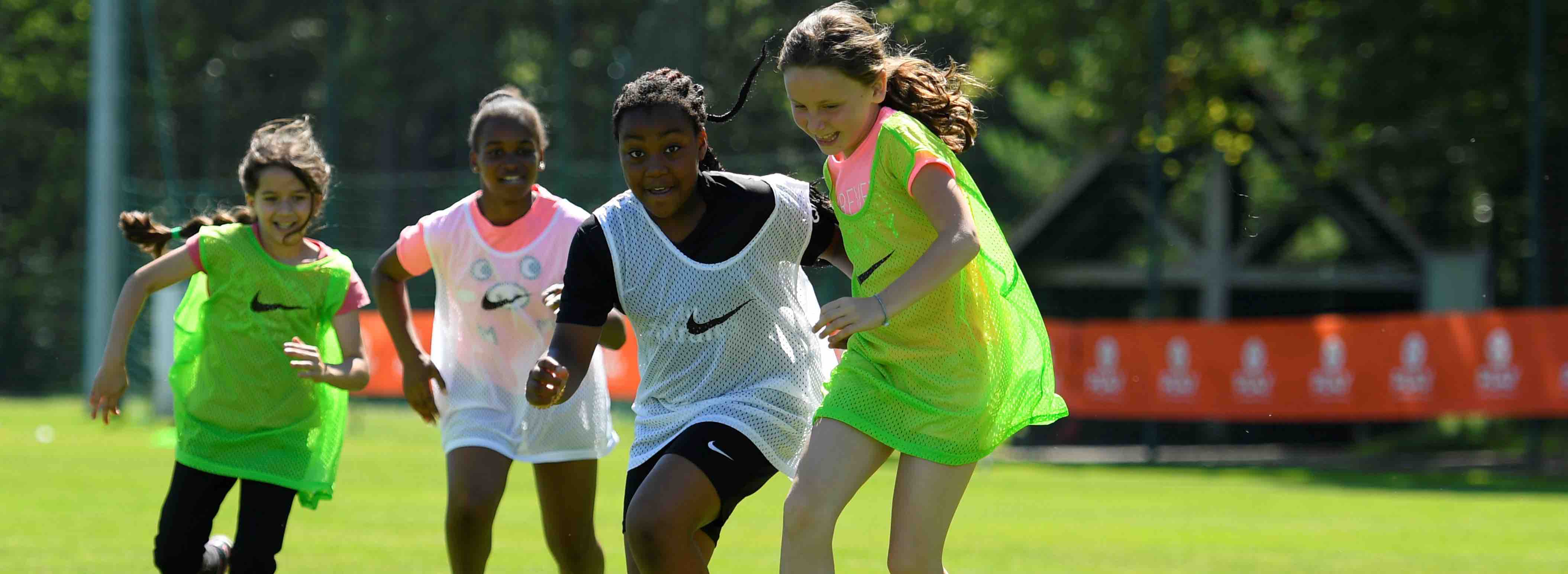summary
our action
PLAY International France towards a more inclusive education by using sport and play as powerful tools for learning.
Our ambition is to support teachers and education professionals in implementing innovative teaching tools that address today's societal challenges.
We aim to promote equal opportunities, challenge stereotypes, and create inclusive learning environments. By combining physical activity with collective reflection, we help children and young people better understand the world around them while encouraging emotional expression and cooperation.
Our initiatives are designed to meet the needs of teachers and educational stakeholders through in-person trainings sessions, interactive webinars, and innovative projects. By collaborating with partners such as schools, sports clubs, associations, and educational institutions, we co-create tailored solutions to tackle today's educational challenges.
PLAY International France offers a variety of action to meet the needs of the professionals and support pedagogical innovation through sport and play.
In-person training sessions and workshops
Our in-person training is tailored to teachers and educational professionals. For teachers, we offer three-hour introductory workshops on Playdagogy, approved by the Ministery of Education. For other professionals (youth workers, educators, sports clubs...), we deliver more in-depth 1.5-day sessions, certified by Qualiopi. These immersive trainings mix theory with hands-on experience, allowing participants to both live and lead a session.
Webinars
Our one-hour webinars allow us to reach a broad audience with accessible, interactive content. They present themed play-based sessions and are designed for any education professional seeking quick, practical tools. Topics include emotional regulation, gender equality, and environmental awareness. Each session offers ressources, peer exchange, and live Q&A to dupport day-to-day practice.
Innovative projects
Innovation is central to our work. We co-create projects with field partners based on real needs, using play and physical activity to design inclusive, engaging solutions. Recent examples include Let's PLAY Maths (learning Maths through movement), Gender-inclusive playground games to promote gender equality), and Gender Equality Through Rugby, which adapts our tools for sports clubs.
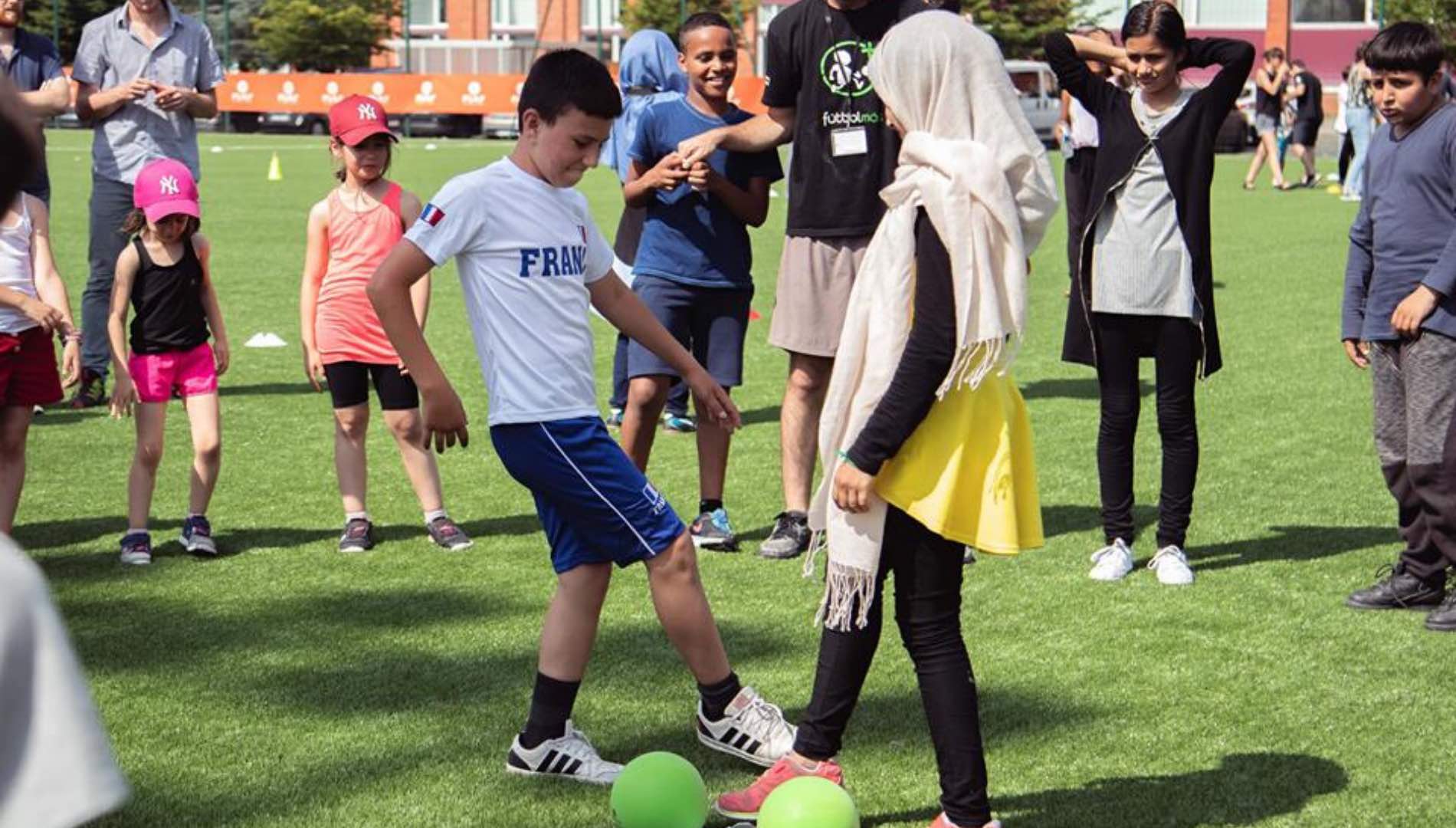
 FR
FR EN
EN